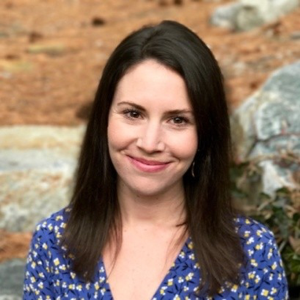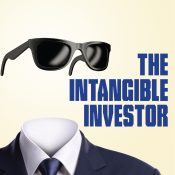In Episode 10, Season 2 of his podcast “Understanding IP Matters,” Bruce Berman asks questions about what generative AI means for business, creators, and society.
Is the content produced by new tools like Microsoft-owned ChatGPT ownable? Is it ownable via copyright? If it is, who owns it? The human who entered the prompt, or the company that owns the tool? What about the rights of copyright owners whose works were used to train these new tools — sometimes without their consent and often without compensation?
To explore how artists and inventors can continue use intellectual property to get paid for their original ideas in an AI-world, Berman hosts Keith Kupferschmid and Lana Love.
Kupferschmid is a former patent examiner who now heads the Copyright Alliance, a 2-million-member nonprofit organization composed of creators based in Washington D.C. The Alliance unites artists of different disciplines to support each other’s policy interests.
Lana Love is a classically-trained singer songwriter, pianist, dancer, and actress turned pop artist who leverages social media and AI to promote her genre-bending music. The entrepreneur encourages young artists to ask questions, develop multiple income streams, and educate themselves about intellectual property for their business interests.
Berman probes Kupferschmid and Love for their insights related to entertainment, law, policy, AI, and intellectual property.
Key Responses
What has been the copyright community’s take on generative AI? Is it a tool for creators or a harbinger of weaker rights and loss of income? What’s your take?
Keith Kupferschmid: “Can I say yes? In other words, can I say both? Because I think that’s true. We have a lot of creators and organizations in the creative community that are using AI. Matter of fact, many have been using AI for quite some time now.
It’s a real opportunity. It will bring new types of creativity to the forefront. It’s a good thing, a good opportunity.
But like with any new technology that brings along new opportunities, it also brings along some challenges — and there’s a lot of challenges here.
The biggest one is simply that the AI developers are not getting permission or compensating copyright owners when their AI tools ingest copyrighted works in order to train those tools. That’s the biggest issue.”
Copyright Alliance represents creators of all types, recording artists, photographers. Which groups have been most vocal about their opposition, or concern, about AI?
Keith Kupferschmid: “I wouldn’t use the word opposition. I would use concern, right? We at the Copyright Alliance and our members are all supportive of AI, but they’re supportive of responsible, ethical, respectful use of AI. And there’s a difference! Because we don’t think that’s going on necessarily right now.
Which of my members are concerned about AI? I can tell you, every single one of them!”
Lana, in addition to performing and acting, you also teach and coach. One of your taglines is, ‘Run your artistry like an LLC.’ What does that mean?
Lana Love: “Being an artist is about so much more than making music. In the beginning, I didn’t really understand that. I thought, oh, I can just get really good at this one thing. Right?
Keith, you put it so well: There will always be a place for talent. There will always be a place and an audience for mastery. I think that’s very important.
But alongside that, it’s called the music business, right? Not the music. It’s the music business. These two pieces have to work in tandem for something to be successful.
In the beginning, I didn’t know I’d be making a way for myself and forging a path also for others to figure it out. There’s no rule book, and that’s a big problem actually, because there can be a step-by-step process of how to smooth out some of those bumps.
There’s a lot of questions and not a lot of answers because everyone makes it so differently, but my goal with Run Your Artistry like an LLC is to just send the elevator back down.”
More Highlights
Listen to the entire episode to hear Berman, Kupferschmid, and Love explore:
- The realities of making money in the music business as an artist and the enduring value of raw emotion;
- How Love’s pre-professional program for young creators teaches them about the value of owning their own work;
- The benefits of organizations with different interests rallying behind copyright protection;
- Why many of the cases filed at the Copyright Small Claims Court have been dismissed in its first year.

![[IPWatchdog Logo]](https://ipwatchdog.com/wp-content/themes/IPWatchdog%20-%202023/assets/images/temp/logo-small@2x.png)

![[Advertisement]](https://ipwatchdog.com/wp-content/uploads/2024/04/Patent-Litigation-Masters-2024-sidebar-early-bird-ends-Apr-21-last-chance-700x500-1.jpg)

![[Advertisement]](https://ipwatchdog.com/wp-content/uploads/2021/12/WEBINAR-336-x-280-px.png)
![[Advertisement]](https://ipwatchdog.com/wp-content/uploads/2021/12/2021-Patent-Practice-on-Demand-recorded-Feb-2021-336-x-280.jpg)
![[Advertisement]](https://ipwatchdog.com/wp-content/uploads/2021/12/Ad-4-The-Invent-Patent-System™.png)






Join the Discussion
2 comments so far.
Anon
June 1, 2023 09:29 amBarely into the introductions and I am already placed in a guarded state of hearing merely a one-sided exposition.
Much like the recent Copyright Office “Reach-Out on AI,” having such a one-sided presentation is eminently UNhelpful as statements are asserted that are clearly erroneous (leastwise in the Copyright Office case — I have to still listen to this presentation).
This type of LACK of counterpoint tends to create a FALSE sense of the facts and law at the foundation of the discussion, and instead of nurturing nuance and agreement, tends rather to only solidify positions already staked out.
Here’s to my being disappointed and the presentation here exceeding my low expectations and doing more than just presenting one side.
Bruce Berman
May 31, 2023 12:30 pmLana Love is a singer-songwriter who has learned what it means to be in the music business. AI takes her challenge of those of creatives like her to a new level. Keith Kupferschmid is an expert on copyright policy who was a USPTO patent examiner. They have a compelling story to tell.